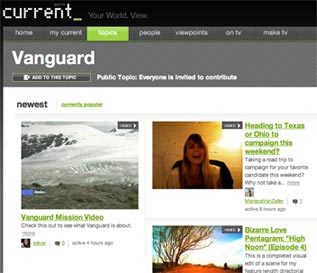To add to our burgeoning hoard of international bloggers, Journalism.co.uk has recruited China Daily’s Dave Green to write about online journalism in China.
I recently fell into conversation with a Beijing taxi driver regarding his opinion on the situation in Tibet. His view was that he really had no idea who to believe, as he felt the government-controlled news sources could not be relied upon to provide a truthful account of what was really happening, and, even if he could read English, he would be reluctant to trust Western news sources either.
As an employee of China Daily I encounter on a daily basis the worst of China’s state-peddled misinformation and propaganda.
While it is true that Chinese language newspapers are sometimes prepared to go against the grain and report the truth, the reality is that all traditional media sources are state controlled, and those who wish to dig deeper must do so on China’s burgeoning blogosphere.
The cautionary tale of Zhou Shuguang illustrates the dangers Chinese bloggers face when attempting to bring the truth to light.
Zhou gained a measure of fame early last year for documenting the plight of a homeowner in Chongqing who refused to give in to the demands of a property developer and allow his home to be demolished.
Under the pen name Zola, Zhou publicized the case on his blog and provided up to date coverage with video and still images as the dispute progressed.
The publicity Zhou generated eventually led to the authorities reaching an agreement with the homeowner, inspiring Zhou to continue exposing similar cases.
However, his work, which was funded by a mixture of interview payments and donations, came to an abrupt end in November last year after he travelled to the city of Shenyang in northeast China.
There, he met with a number of defrauded investors who had been promised a 30 per cent return for providing for an aphrodisiac powder. The scheme was, of course, (ant) pie-in-the-sky and resulted in an army of angry investors demanding compensation and government action.
On his way to an interview, Zhou was picked up by Chinese police and told in no uncertain terms to get on a plane home and cease his activities.
He has since returned to his native home to open a business selling vegetables.
Zhou’s short-lived crusade raises a number of interesting issues, not least how he managed to keep his blog open.
Unsurprisingly, Zhou Shuguang’s Golden Age blog was added to the list of blacklisted websites soon after he began work, which prevented it being accessed in China.
However, Chinese netizens, led by blogger Isaac Mao are now increasingly hosting their blogs on servers outside the Chinese mainland.
While this still requires viewers to circumnavigate China’s firewall via the use of proxy servers, it does mean they are safe from being totally shut down by the authorities.
As John Kennedy documents on his excellent Global Voices China blog, the work of AIDS and environmental activist Hu Jia has inspired an increasingly net-savvy population to continue using the highly-encrypted services offered by Skype and Gmail to communicate.
Skype drew criticism in 2006 for partnering with TOM Online, a mobile internet company based in China, to restrict Chinese netizens to downloading a modified version of the software that incorporates a sensitive word filter.
However, for those who intend to seriously pursue citizen journalism in China, obtaining original Skype software is not a problem, and Zhou Shuguang used it extensively to interview people regarding the sensitive topics that he covered.
Those who choose to try and provide uncensored and accurate news in China have an expanding array of tools to help them win the battle with the censors, there are also tools to help read and watch their material behind the firewall.
However, as James Fallows says, the wider question remains how many Chinese will be prepared to listen and watch.
